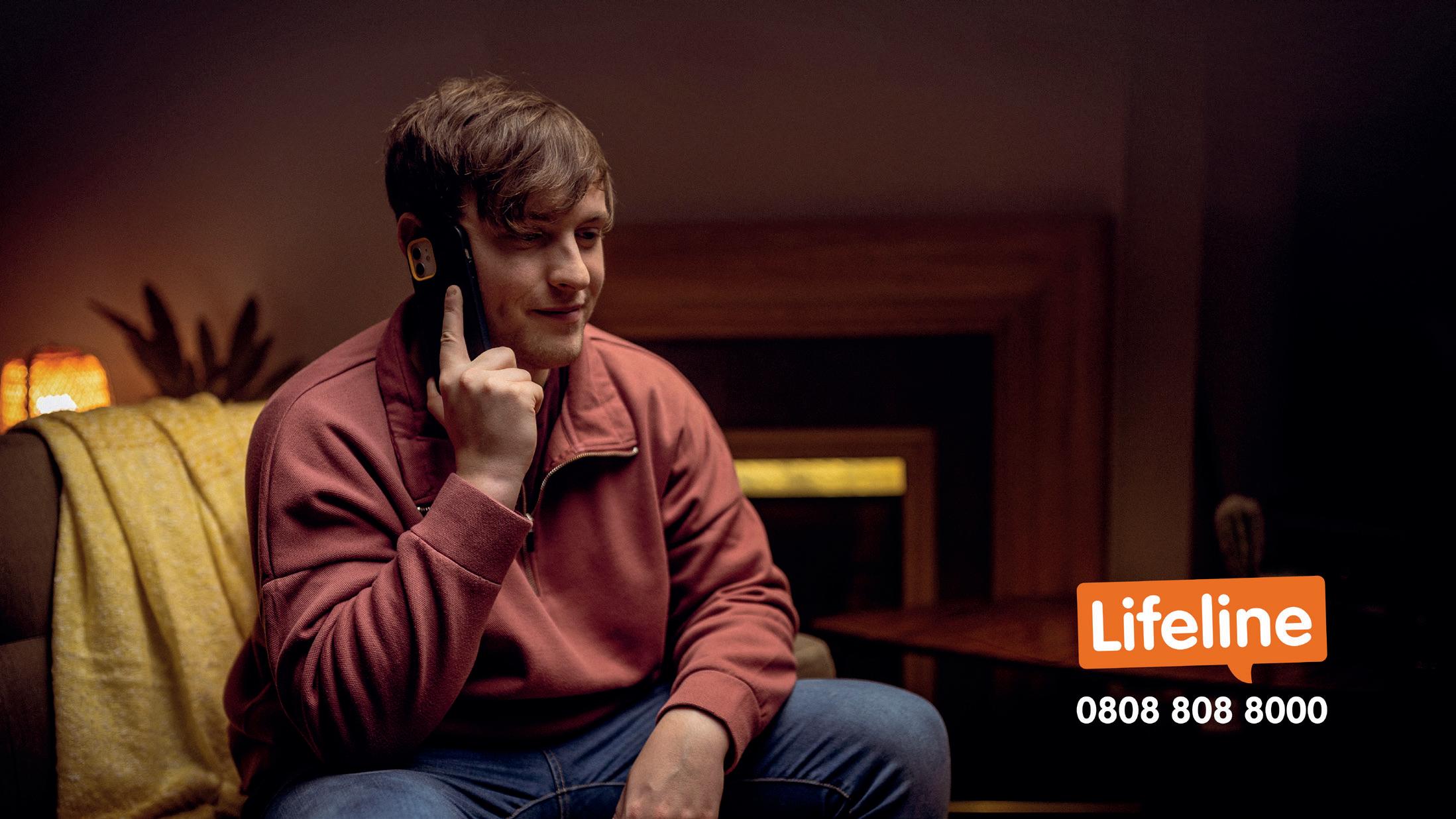
1 minute read
Talking REALLY HELPS
‘Talking really helps’ is a new mass media campaign from the Public Health Agency (PHA) encouraging anyone with feelings of anxiety or distress, or who is in crisis, to start the conversation about their thoughts and feelings.
The ‘Talking really helps’ suicide prevention campaign encourages anyone feeling low and struggling to cope to talk to someone they trust about how they are feeling. The message is don’t hide your real feelings, opening up to someone really does help and with the right help and support, things will get better.
The campaign promotes Lifeline, the free 24/7 crisis helpline, and encourages anyone in distress or despair to call the helpline on 0808 808 8000 and speak to one of Lifeline’s qualified counsellors. Textphone users can call 18001 0808 808 8000 and British and Irish Sign Language users can also use the SignVideo app. If English is not your first or preferred language, Lifeline can access translators to speak to you in your preferred language.
Lifeline support
The Lifeline counsellor will listen to you and work with you to provide the help and support that you need. In addition to helpline support, Lifeline also offers follow-on calls, signposting, and short-term counselling.
Support is available for anyone living in Northern Ireland regardless of their age, gender, religion, disability or sexual orientation.
Spot the signs
We can all feel anxious, stressed or low at times, but it can be a problem if these feelings get worse, go on for a long time or affect our daily lives.
It can be difficult to predict when you or someone you know might need support, but a change in behaviour is often the first thing you may notice. Some signs to look out for are:
• A low mood that won’t go away
• Being more irritable than normal
• Finding everyday tasks hard to do or cope with
• Spending more time alone
• Feeling tired and disturbed sleep
• Skipping meals or eating more than normal
• Misusing alcohol or drugs
• Talking about or thinking about not wanting to live
We are all different and not everyone will display all of these early warning signs.
Anyone can experience a mental health problem or feel suicidal, but LGBTQ+ people are at greater risk of poor mental health and have higher rates of suicidal thoughts. The reasons for this are complex, but as a minority community LGBTQ+ people may experience stigma, prejudice and discrimination.
If you are struggling to cope, don’t suffer alone. Talk to someone about how you are feeling. Call Lifeline on 0808 808 8000 or visit lifelinehelpline.info to learn more.










